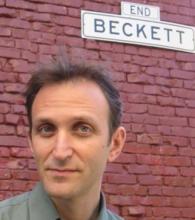What Is It
What are we talking about when we talk about Sherlock Holmes or Santa Claus? Something that doesn't exist? Something that exists only in the mind? Something that exists only in a fictional or imaginary world? Are statements about fictional objects true? Is there a distinction between literal truth and "fictional truth?" John and Ken uncover the facts about fiction with Joshua Landy from Stanford University.
Listening Notes
Is there anything more to fiction than entertainment? Can we learn anything from it? Even if fiction is a pleasant way to pass time, how does it teach us anything about reality? John thinks there is "nutritious" fiction. It lets us get inside the psychology of the fictional characters. Ken introduces the guest, Josh Landy, professor of French at Stanford. John asks whether fiction crowds out the information that we need to live our lives. Landy replies that the problem is being set up the wrong way.
The two ways of thinking about fiction presented so far has concentrated on the content of the work, whether it is "nutritional", and the characters, getting inside their heads. Landy suggests that there are two other important ways of thinking about literature, concentrating on the form and concentrating on the process of reading. Landy thinks that Plato wrote in dialogue forms in order to engage the reader during the process of reading. Ken thinks that another function of fiction is an invitation to imagine or reconstruct worlds. Does concentrating on fictional worlds detract from living our lives in this world? Landy thinks that skills acquired during reading can be deployed in real life, so it does not harm our ability to live.
John says that part of what makes literature worthwhile is finding out how other people think. Landy thinks that it actually helps us find out about ourselves. Does reading fiction necessarily make the reader a better person? Landy things that it doesn't make us morally better, but it does improve the reader's life. Landy says that you have to engage the right kind of novel in the right kind of way to improve yourself. He puts it metaphorically, if you go to the gym and don't lift the weights, it isn't the fault of the weights that you don't get stronger. Is the point of fiction to improve ourselves morally? There are some stories which have morals that we resist, sometimes very strongly.
- Roving Philosophical Report (Seek to 04:22): Fawnee Evnochides asks several people why they read fiction.



